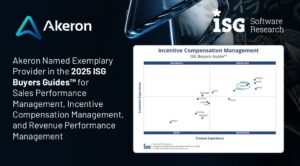Scenario
In times of high inflation, the number one priority for investors and financial services institutions is to protect savings and maximise return.
The financial services sector is therefore entrusted with the demanding task of meeting these needs while assuring customers are making the best investment decisions.
In this context, client facing resources such as brokers/private bankers and portfolio managers become roles that should be properly motivated while managing compliance set by regulators.
A reliable system for managing incentives and commissions is a primary success factor to meet the expectations outlined above.
Challenges and critical issues in Incentive Compensation process
Here are the major challenges organizations face when designing and implementing an incentive compensation process.
TALENT RETENTION
It is no secret that retaining top talent is key to promoting organizational growth. Recruiting and retaining new employees is expensive and time consuming. Moreover, turnover negatively affects the productivity and morale of your employees.
It is not all about the money, but certain roles are measured on performance and there is an expectation that performance is managed in a transparent and rewarding manner.
A clunky and error prone compensation process leads to higher turnover rates.
MANAGE COMPLEX INCENTIVE MODELS
FS organisations feature complex, structured, and highly personalised incentive models. They are often managed by manual and fragmented systems, which inevitably leads to errors. In addition, manual processes are resource intensive and reward teams are inevitably focussed on low value activities with the frustration and risk of potential overpayments.
INADEQUATE HR MANAGEMENT SYSTEM
HR management solutions are not suitable to manage these processes. Incentive models require a higher level of flexibility and need to be remodeled with higher frequency than base salaries or MBO calculations.
NEED TO MEET REGULATORY REQUIREMENTS
The compliance factor is also relevant. Financial Services are a highly regulated sector for all sorts of reasons. Meeting regulatory requirements primarily involves a completely transparent, verifiable, and traceable compensation process.
A SINGLE SOURCE OF TRUTH
Digitising the compensation process removes the above-mentioned obstacles and issues.
- creates a single repository of rules and regulations where all information is traceable
- prevent errors
- ensure rapidity of calculations
- saves time and effort
Digitalisation: the key to success
The digitalization of processes quickly responds to the growing and widespread need for planning and managing incentives, as it effectively simplifies and streamlines the work of strategic roles.
Benefits include:
- The HR Department can monitor and control the variable remuneration of employees by managing reference KPIs effectively;
- The Finance/Accounting Department can produce more accurate company’s budgets and forecasts by optimising the control over incentive-related commercial costs;
- The IT Department can centralise and efficiently manage key processes that would otherwise be scattered and out of control;
- Lastly, digitalisation supports the entire structure in monitoring the progress of incentives through accurately tracking performance.




